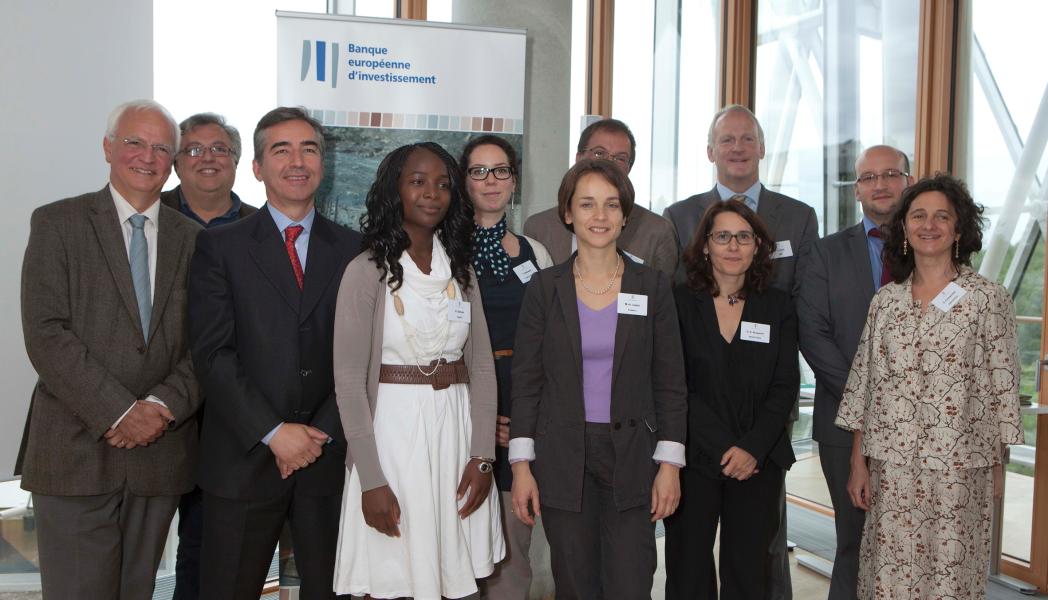27 October 2015. Brussels. Food security has become an increasingly important priority on the global development agenda and the EU Member States have encouraged the EIB to give greater support to this priority in the ACP countries.
The European Solidarity Financing Fund for Africa (“FEFISOL” or the “Fund”), is a specialised rural microfinance Fund created with the aim to provide medium-term financing to rural Microfinance Institutions (“MFIs”) and small producer businesses active in fair trade, organic products and food production.
The Lunch time conference showcased how the EIB facilitates access to finance for agricultural and food businesses, from micro-enterprises to large corporates, and it included some concrete project examples, such as FEFISOL, an equity investment in a closed-end microfinance fund providing debt and equity financing to African MFIs and agriculture producer organizations, and an irrigation infrastructure project for smallholder farms in Swaziland.
FEFISOL Microfinance Fund- Introduction: Mr Aloys Lorkeers, Policy Officer, DEVCO C1, Rural Development, Food Security, Nutrition
- Presentation: Ms Eva Krampe, Agricultural Economist, EIB
Highlights:
The European Solidarity Financing Fund for Africa (“FEFISOL” or the “Fund”), is a specialised rural microfinance Fund created with the aim to provide medium-term financing to rural Microfinance Institutions (“MFIs”) and small producer businesses active in fair trade, organic products and food production.
- The Fund mainly provides debt but also equity and guarantee instruments throughout Africa, including North Africa and Sub-Saharan Africa.
- Solidarite International pour le Developpement et l’Investissement (SIDI), a French NGO which provides financing and technical assistance to organizations in developing countries, manages FEFISOL, while a Belgian development organization Alterfin and Etimos of Italy provide support for the fund.
- EIB provided EUR 5 million (USD 7.2 million) for FEFISOL to help develop microfinance operations and small holder organizations in rural Africa and improve access to fair trade and organic export markets. Proparco structured the equity investment of The Investment and Support Fund for Africa (FISEA) for a total consideration of EUR 5.4 million (USD 7.77 million). The Norwegian Microfinance Initiative (NMI) will also make a EUR 1.8 million (USD 2.59 million) investment in the fund along with unspecified amounts from Crédit Coopératif, Societa Europea Finanza Etica ed Alternativa (SEFEA), Développement International Desjardins (DID) and Fondation Caritas France.
- Results after less than one year (November 2014): 57% of Microfinance final clients are rural and 17% of their portfolio is dedicated to agriculture 3 POs financed for a total of about EUR 1.2 m (about 1/3 of total portfolio) represent altogether about 9,500 small holder suppliers ECOOKIM in Ivory Coast ACPCU Uganda KPD Kenya
- Related: EIB’s financing mechanismsin agriculture in Africa (Brussels Policy Briefing n° 39 Global food systems, local impact: the role of agribusiness and development partnerships in advancing African agriculture, Brussels, 25 November 2014
ACP Smallholder Farming / ACP Smallholder Facility:
- A joint initiative of EIB and IFAD to support smallholder farming activities in ACP countries
- Building on pilot projects carried out by IFAD, with the objective of providing medium to long-term local and foreign currency funding (currently very scarce)
- 5-8 countries targeted, including Malawi, Mozambique, Ethiopia, Nigeria, Rwanda
- Amount: up to EUR 50m
- See also: Microfinance for Smallholder Farms (MF4ShF)Concept Note, . This Concept Note (Hervé Busschaert, Feb 2014, 19 pages) sets out the rationale for the European Commission (EC) to include microfinance within its programming for development. It is aimed primarily at Commission staff in Brussels and in Delegations, but it is hoped that it will be of interest to a wider group of partners and stakeholders. It discusses the concept of microfinance for agriculture investment in small farms (MF4SHF),
Study: Financing Opportunities in Agricultural
and Food Value Chains in SSA
- Screening ongoing by GIZ to identify financing opportunities in value chains for EIB
- 10 country profiles: Benin, Burkina Faso, Burundi, Côte d’Ivoire, Ethiopia, Madagascar, Malawi, Mali, Tanzania, Zambia
- Selected criteria: Agricultural relevance, LDC, agriculture/nutrition as focal sector in the NIP
- Gap analysis in value chains and relevant counterparts
- Potential for co-funding with DEVCO, GIZ et al
Emerging Recommendations for Policy Development (*GIZ/BMZ, 23 pages, draft for the Roundtable on Innovations in Agricultural Finance Antalya, September 9, 2015)
- Value chain development by the private sector in Africa (*GIZ, 2013, 176 pages)
- Agricultural Finance –Trends, Issues and Challenges (*GIZ July 2011, 60 pages)




No comments:
Post a Comment